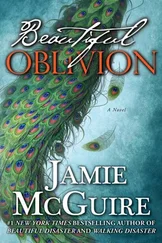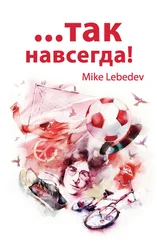They called for a police helicopter; the miner locked himself in his metal cistern and shot at anyone who got close; they hauled the corpse with a tractor plow and placed it on the billiard table taken from the antechamber of the miners’ bathhouse. The diesel generator stopped at eight, and the men played billiards at night wearing miner’s caps; the nets in the pockets were torn, so the balls always rolled off into the gloom.
Now the table was outside the bathhouse, its legs deep in snow, and the corpse lay on it; the wind blew snow into his hair, and his head looked like a frozen cabbage—there is a variety of white crinkly cabbage, the leaves almost curly; the mouth and nostrils, everything, was filled with snow, and the head without orifices was sculptural, as if the artist had been called away and would be back any minute to make the eyes, mouth, and nostrils. The snow fell harder, there was a blizzard, and the police helicopter turned back, the mountains danced in waves, the metal cisterns rang when the wind hit them hard; for three days people stayed indoors, drinking to the dead man’s soul, and that’s when I remembered the radio operator’s story of his childhood.
He was born in the settlement where the police helicopter was kept, awaiting summer weather; his father was a radio operator in a polar station on one of the islands in the icy latitudes that were used to cartographically celebrate individuals; they were named in honor of princes and generals, forgotten politicians; captains of polar ships named them for their beloveds, scholars in honor of their teachers; the Soviet regime named them for newspapers, institutes, and anyone deemed worthy of award; the reality of the new era thus appeared on the map—there were islands called Bolshevik, Pioneer, Komsomol, and October Revolution.
One of these islands had a meteorological station; three men worked there—the station chief, the meteorologist, and the radio operator. Every six months, a plane flew in; a solid ice patch was the landing field, they flew in food, newspapers, smokes, and batteries for the radio transmitter. Twice a day the station broadcast the weather information; it was used with many others as a forecast for ships and airports. The radio operator and the station chief were Party members and held meetings, making the meteorologist wait outside; but one summer, when a plane could not land at the station since the ice was melting, the operator received a message: he, as a Party member, was told to arrest the station chief, now the former station chief, and an enemy of the people, and in the same message he was appointed acting chief; the man was to be arrested, isolated and sent to the mainland by plane, which would arrive two months hence.
To arrest and isolate on an island that had only one hut with one large room; arrest and isolate a man he had worked with for four years, four winters; arrest and isolate; the radio operator suspected that if he did not follow through, the meteorologist would later give him away; he had received the message and had confirmed receipt.
The radio operator arrested his chief and informed him of the contents of the message; together with the meteorologist, they made a dugout in the cold ground, built a stone stove and a bunk, and the former chief moved in there; they could have left him free on the island, for it was impossible to escape, they could have lived with him in the hut for two months, but the radio operator did not know what the meteorologist thought, the meteorologist did not know what the radio operator thought, and any question, any word could later mean their own arrest.
The radio operator thought that the chief would try to kill him; but he sat in the dugout, insulated by many layers of rubberized canvas, ate his portion of food—now referred to as rations—and asked only for the atlas. Once he got this, the chief rejected his comrades; he talked to himself, as if they were not there.
The night before the plane was due, in the white night of summer, the former chief tied them up; they had set up a watch to guard him, but the meteorologist fell asleep; he tied them up, took the carbine, clothing, and food, and went off into the ice, toward the Pole, taking along the atlas he had pored over for two months.
As the radio operator later told them, the chief took pity on them, kept them from having to turn him over to the police; the plane spent a long time circling over the ice but never did find the fugitive, the ice was breaking apart, long sheets of water, kilometers long, showed black everywhere. Perhaps some expedition would come across the man, his frozen body; did he shoot himself, drown, starve to death? The radio operator said the chief appeared like a raving lunatic when he left; they had placed him at the very edge of the inhabited world, locked him in a cage of words in the middle of the icy desert where he kept repeating lines from the radio message.
The radio operator was put on trial, and afterward he attempted to disappear in the most remote settlement, surrounded by taiga and mountains; he’d become frightened of open spaces, he imaged he was too visible, too noticeable; he lost his mind, he maintained that a circle was more than 360 degrees, that there were crevices between the degrees where one could squeeze in, and which only looked small and insignificant but were actually very wide; he was removed from work when he could only see one message in every radiogram, one message with an order to arrest himself, and he trembled, and he tore the transcription journal and tried sending a message to nowhere, claiming to know where to find his former chief, that the chief had escaped on the island through that very crevice between degrees, and if we studied this phenomenon it would be very useful because spies are surely using these crevices to get in; he died of a heart attack when crossing a summer field.
The son, also a radio operator, spoke about his father with detachment; he retold the father’s torment through his own, what it was like to have a father like him; his father told him everything, and the son was burdened by the trust, he didn’t know what to do with his father’s honesty, it oppressed him, he was ashamed of his father’s breakdown, he hurried to tell it all, to be free of it at least in part; and he died in just as disturbing a manner, incongruously, as if expiating his father’s sin; his life turned on a trifle, a burned match.
The blizzard lasted three days; then the snow quieted down, people dug out the entrances to their houses, the clouds passed quickly; the sun was threatening, primordial, as if it had been reborn over the three days of blizzard. The snow still fell, attacking in short raids, and in each raid I imagined the cavalry or flying figures.
The snowbanks in front of the miner’s house developed an icy crust, and suddenly everyone saw him running, running from the house, breaking through the crust and sinking, then pulling out his feet as if the earth were trapping him; he ran and shot at the sky, as if fending someone off, someone up there, elusive and light-winged. Shells fell from his pockets, he kept stumbling, his face was bloodied, his hands red, but he would reload the shotgun, take aim, and shoot, one barrel at a time, switching targets between shots as he ran; he shot and ran along a high cliff, its steep slopes overhanging a stream.
Thin beams of light caught the snow clouds, and deep flickering spots moved in the sky. The fugitive shot at anything he thought was approaching from above, catching up to him; every approach of shadow or sunbeam was a threat and he shot at it.
Someone said, with understanding, “He’s shooting at angels.”
The madman in the park also ran that way, as if it was not the orderlies chasing after him; and now, lying in the dinghy sailing to the ocean, feeling my own madness, I could see through that madness the wandering souls bearing the weight of sins and the unconsciousness of birth; how bound by the body they ran from angels—who alone could save them— thinking they were angels of vengeance come upon them; they hurried to tear the chains of life, but imprisoned in the fortress of their bodies, they were doomed to bear on their shoulders everything that had not happened, was not understood, was not discovered, without ever knowing what was tormenting them; and I felt my madness recede, its fever leave, and the blood of Grandfather II, who had imagined in the madman’s cry the scream of the carver crushed by a falling tree—there was no more of that blood in me.
Читать дальше












